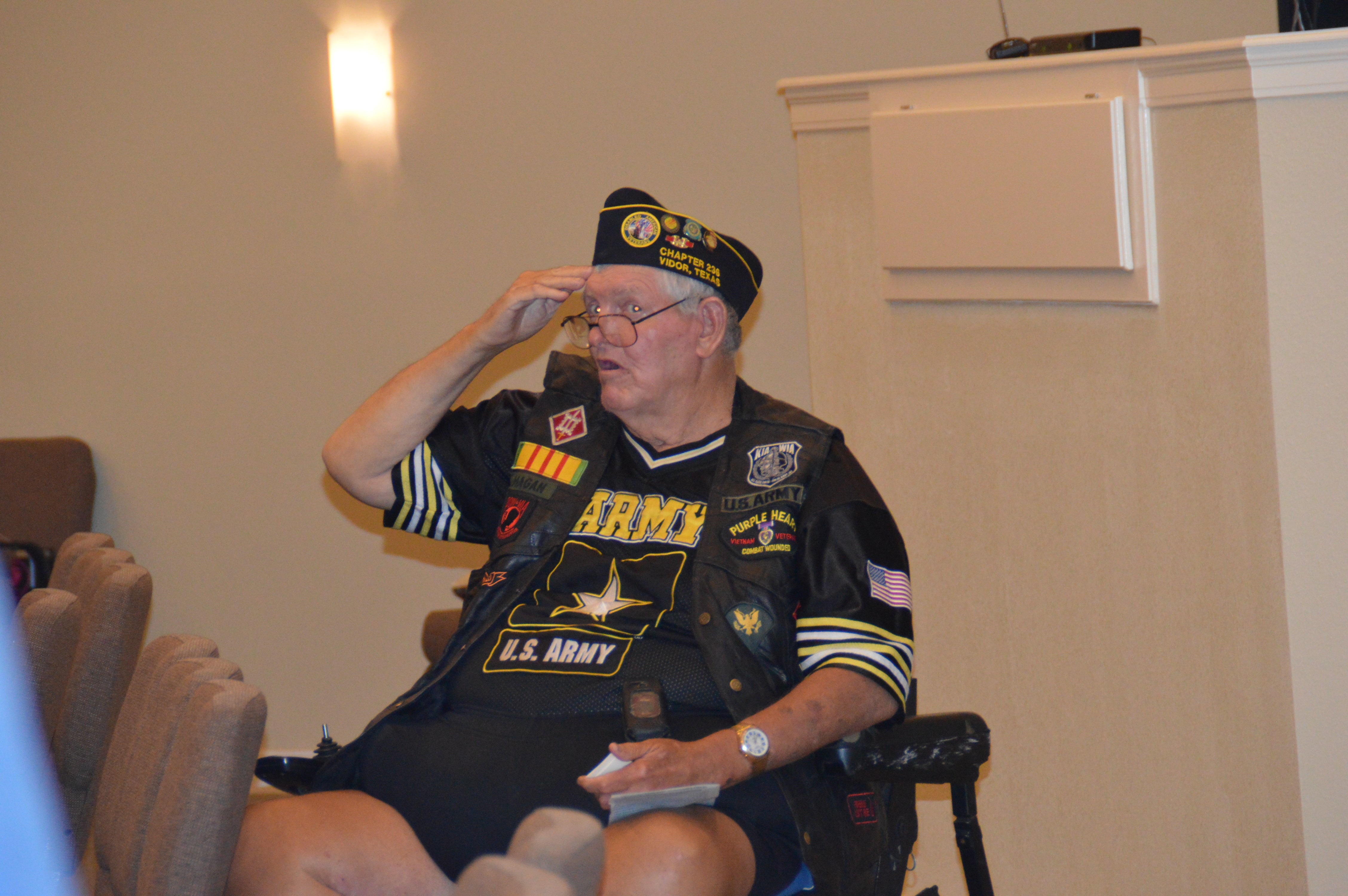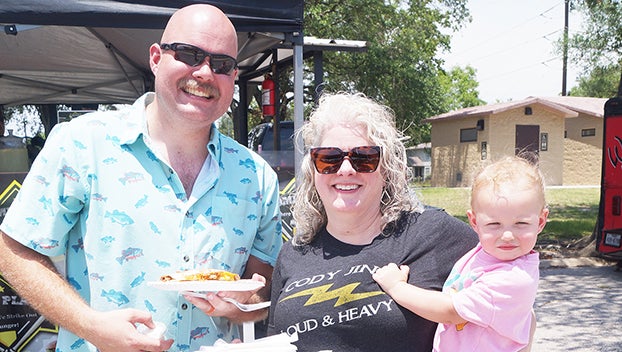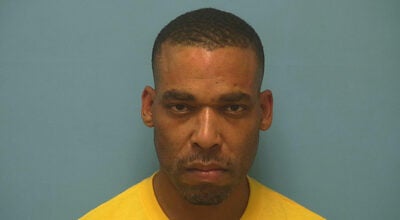A war that never ended
Published 12:01 pm Tuesday, July 3, 2018

- Dawn Burleigh/The Orange Leader Michael Hagan Sr. salutes the American Flag at the Heritage Veterans Memorial Plaza during the annual tribute to Orange County Veterans.
By Ginger Broomes
The Orange Leader
In 1968, Orange resident Michael Hagan Sr. was 20 years old, with an absent father and a mother and seven siblings that depended on him.
Desperate to support his family, and with very few jobs available in the area at that time, he volunteered for the Armed Forces, ending up in Vietnam. He sent back everything he made to his mother so she could pay the rent and take care of his four brothers and three sisters.
As an Army Specialist E4 combat engineer, one of his duties during Vietnam was as a diesel mechanic.
“I was working on the trucks and if they had a convoy that was getting ambushed, they would chopper me in, and I would have to fix the trucks while they were shooting at me,” Hagan said.
That ‘job’ also included checking culverts for land mines.
“One day, I was checking, and stepped on a land mine. Three guys died. I’m checking culverts, and the next thing I knew, a bomb went off, and I was on top of the road,” Hagan said.
Later, he’d recall the sound of bullets hitting the chopper as he was airlifted out.
His tour in Vietnam lasted from January 18, 1968 to October 10, 1968.
All these years later, in 2018, he still remembers the exact dates: the beginning and end of his stint over there. But Vietnam would not be over for him.
Recovering as much as he could from his injuries, he returned to Orange and married Ida, whom he had known since childhood and had started dating before he’d left for the Army.
He received the Purple Heart for his service, and, having been declared disabled by the VA.
He started looking for civilian jobs, but no one would hire him due to his injuries.
“I took whatever job I could find – I hunted, I fished and trapped – just whatever I could do to survive. Raised two kids in a plastic house made out of trees,” Hagan said.
Hagan had a son in 1970 and another in 1972. The VA was giving him $43 a month for his family of four.
That plastic home had no water and no electricity, and there even came a point where he and his family lived in a tent in the woods of Orange. Neighbors tried to get his children taken away from him because of the living conditions.
For years, he tried to make it work in Orange for his family, but unable to get the help he needed in Texas, he relocated his family to Wilburton, Oklahoma, to a place called the United Spanish War Veteran’s colony – a refuge in southeastern Oklahoma where veterans of all wars could rent up to an acre of land for pennies on the dollar in order to place a mobile home or other structure for living. The VA had also raised his payments to $500 a month. He would stay in Oklahoma until 2014.
There has been controversy in recent years of how the VA has treated vets, and certainly Hagan witnessed those first hand. Yet now, he is also witnessing a new change, a new compassion, in how veterans are treated in this country. From the landmine explosion all those years ago, Hagan lost part of his left foot, and the back of both legs. His lower back is fused and there are rods in his neck. For the last 12 years he was bound to a wheelchair or, now, a scooter, and suffers from diabetes, Parkinson’s, and Alzheimer’s. He is blind in his right eye, and only recently did doctors discover that he has issues with his pituitary gland due to Agent Orange in Vietnam.
But new life and new changes did find him. Just as the treatment of returning veterans has changed from Vietnam to Iraq and Afghanistan, in recent years he’s seen change in the VA system.
Just recently, he received a $74,000 grant from VA to fix his house and make it ADA – compliant, and finally received back-pay dated to his date of service. These overdue payments enabled him to buy a van, and with that van, Hagan continues to serve his country through service to other veterans, as his selfless acts continue – the same selflessness that caused him to go into a warzone in order to support his family. The same selflessness that caused himself to throw his body in harm’s way, taking the brunt of a land mine to protect his fellow soldiers.
Although not on a battlefield but in the service of his fellow veterans now, behind the wheel of his specially- adapted van, he takes fellow veterans who cannot get a ride to their doctor’s appointments in Houston, where he also supplies them a meal.
He is a member of the Disabled American Veterans, and was elected commander of the Chapter 236 in Vidor. He is a member of the Veterans of Foreign Wars and the American Legion.
“I’ve been declared 500% disabled,” he said. “Because the VA applies a percentage for every injury sustained in combat. “
His sons are grown and married now, and he has grandchildren.
“My kids paid for my service by being without,” Hagan said, adding that the experience of the plastic house and tent living made his sons self-sufficient, and able to live off the land. One son at aged five was able to cut up a cord of wood by himself.
But he says he forbade them to join the military, through all that he has been through, Michael Hagan would not have done it differently.
“I’m proud that I went,” he said, adding that even with the PTSD nightmares he still has over 50 years later, he wouldn’t change a thing.
“I’m giving back to my fellow veterans,” Hagan said. “I put my back against their back, and together we’ll be safe.”





